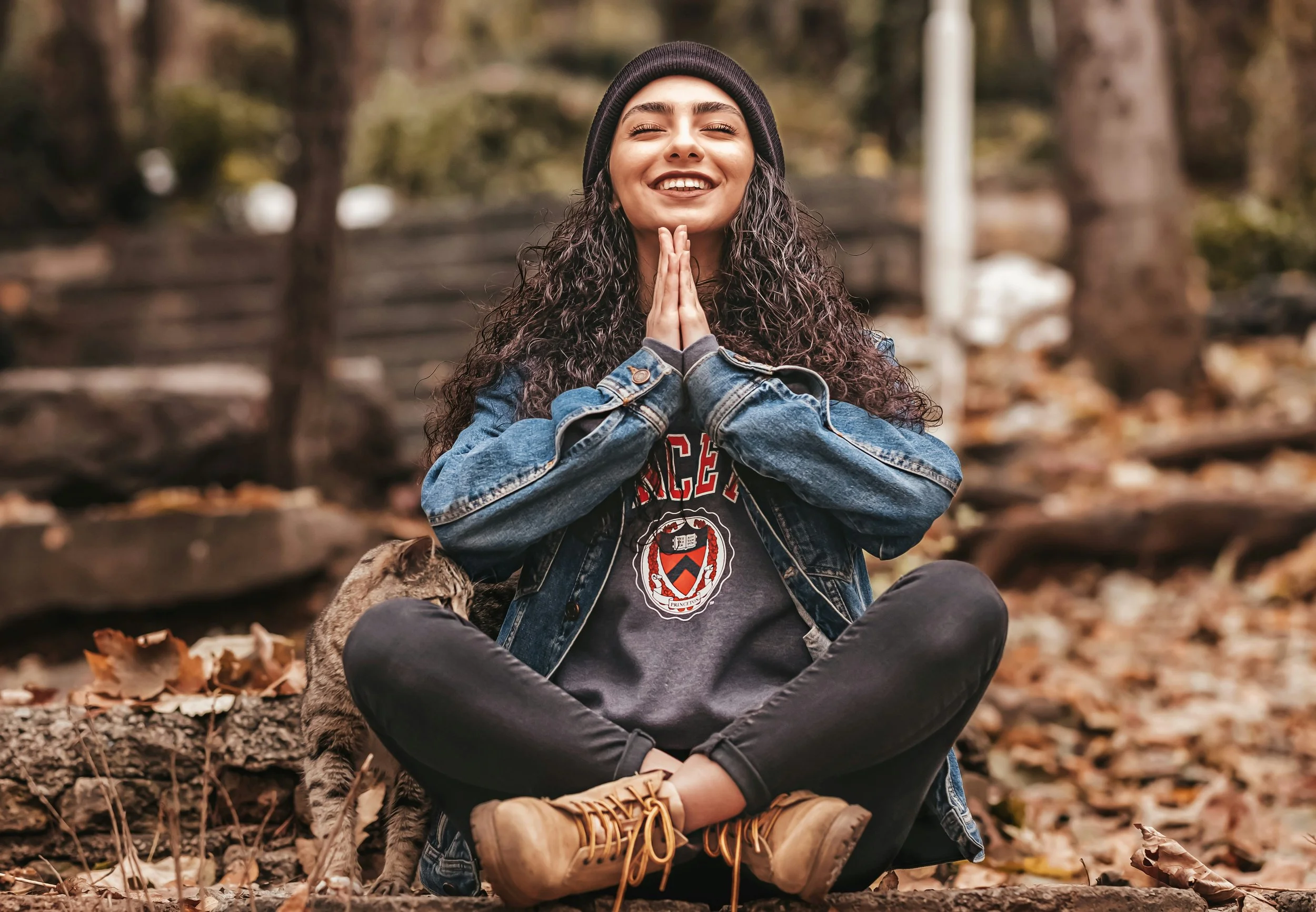Sexual Wellness and Empowerment: A Guide for LGBTQ+ Individuals
Sexual wellness is a crucial aspect of overall well-being, yet it remains an often overlooked element, particularly within the LGBTQ+ community. At Rouse Relational Wellness, we believe in embracing your true self and fostering empowerment through tailored approaches to sexual health. This guide aims to provide insights into sexual wellness, the unique challenges faced by LGBTQ+ individuals, and practical tips for achieving a fulfilling and empowered sexual life.
Understanding Sexual Wellness
Sexual wellness encompasses a broad spectrum of physical, emotional, mental, and social well-being related to sexuality. It's about having a positive and respectful approach to sexuality and sexual relationships, free from coercion, discrimination, and violence. It includes the ability to have pleasurable and safe sexual experiences, with a sense of autonomy over one's sexual and reproductive health.
The Reality of Discrimination and Harassment
LGBTQ+ individuals face significant barriers to achieving sexual wellness due to persistent discrimination, harassment, and anti-LGBTQ+ laws. According to a 2020 report by the Williams Institute, LGBTQ+ people are at greater risk of experiencing mental health issues due to societal stigma and discrimination. These challenges can lead to heightened rates of depression, anxiety, and other mental health concerns.
The importance of tailored wellness practices cannot be overstated. LGBTQ+ individuals deserve wellness strategies that acknowledge and address their unique experiences. A queer-affirming approach to therapy and wellness can help build trust and rapport, providing a supportive environment for healing and growth.
Building Community to Combat Isolation
One of the most effective ways to enhance sexual wellness is by building a strong sense of community. Isolation is a common issue among LGBTQ+ individuals, leading to feelings of loneliness and disconnection. Participating in support groups, attending LGBTQ+ events, and engaging with community organizations can foster a sense of belonging and reduce isolation.
According to Bränström, Hughes, and Pachankis (2024), fostering community engagement significantly improves mental health outcomes for LGBTQ+ individuals (1). At Rouse Relational Wellness, we offer group therapy sessions where individuals can connect with others who share similar experiences and challenges. These groups provide a safe space to discuss personal issues, gain support, and build meaningful connections.
Seeking Excitement Without Substances
Exploring new interests and hobbies can be a great way to find excitement and joy without relying on substances. Substance use is a concern within the LGBTQ+ community, often used as a coping mechanism for dealing with stress and discrimination. Alternative ways to seek excitement can promote healthier lifestyles and enhance mental and emotional well-being.
Consider activities such as outdoor adventures, creative pursuits, or joining clubs that align with your interests. Volunteering and giving back to your community can also be incredibly rewarding, providing a sense of purpose and connection while offering perspective on your life situations.
Finding a Queer-Affirming Therapist
Therapy is an invaluable resource for enhancing sexual wellness and overall mental health. However, finding a therapist who understands and affirms your identity is essential. Queer-affirming therapists are trained to address the specific needs of LGBTQ+ individuals, creating a safe and supportive therapeutic environment.
At Rouse Relational Wellness, our therapists provide culturally humble and sex-positive care. Whether you're seeking individual therapy, couples therapy, or group therapy, our team supports your journey toward wellness.
Specific Wellness Practices
Acceptance and Commitment Therapy (ACT)
Acceptance and Commitment Therapy (ACT) is a powerful approach that combines mindfulness and behavioral strategies to increase psychological flexibility. It encourages individuals to accept their thoughts and feelings rather than fighting or feeling guilty about them. This acceptance allows individuals to commit to actions that align with their values and goals.
For LGBTQ+ individuals, ACT can help in dealing with internalized stigma and negative self-perceptions. ACT promotes a healthier and more fulfilling life by fostering self-acceptance and encouraging value-based actions.
Mindfulness-Based Stress Reduction (MBSR)
Mindfulness-Based Stress Reduction (MBSR) is an evidence-based program that uses mindfulness meditation to reduce stress and improve psychological well-being. Practicing mindfulness helps individuals stay present and fully engage with their experiences, reducing the impact of stress and enhancing emotional regulation.
MBSR can be particularly beneficial for LGBTQ+ individuals who often face high levels of stress due to discrimination and societal pressures. Incorporating mindfulness into daily routines can improve mental health, increase resilience, and promote a deeper connection with oneself and others.
Building Boundaries
Establishing healthy boundaries is a critical aspect of sexual wellness and overall well-being. For LGBTQ+ individuals, setting boundaries can help protect against harmful behaviors and create safer environments. Boundaries ensure that interactions and relationships are respectful and consensual, fostering trust and security.
Tips for building boundaries include:
Identifying Your Needs: Understand what you need to feel safe and respected in your relationships.
Communicating Clearly: Express your boundaries assertively and respectfully to others.
Being Consistent: Maintain your boundaries consistently to reinforce their importance.
Seeking Support: Engage with a therapist or support group to navigate boundary-setting challenges.
Join a Drag or Queer Pole Dancing Class
Joining a drag or queer pole dancing class can be a fantastic way to embrace your sexuality, build confidence, and connect with like-minded individuals. These classes often provide a supportive and inclusive environment where you can express yourself freely and explore your body in new and empowering ways. Whether you're performing in drag or learning the art of pole dancing, these activities promote body positivity, self-expression, and a sense of community.
Pole dancing, in particular, is a physically demanding activity that can improve strength, flexibility, and coordination. It also offers a unique opportunity to challenge societal norms and celebrate non-conformity. Many queer-friendly studios offer beginner classes, making them accessible to everyone, regardless of experience. By participating in these activities, you can cultivate a stronger sense of self and enjoy a fun and engaging way to stay active.
Find a Queer-Friendly Yoga Studio
Yoga is a practice that promotes physical, mental, and spiritual well-being, making it an excellent addition to any wellness routine. Finding a queer-friendly yoga studio can enhance your practice by providing a safe and inclusive space to relax and be yourself fully. One such studio is Mukunda Yoga Studio, known for its welcoming atmosphere and diverse community.
Queer-friendly yoga studios often incorporate themes of inclusivity and acceptance into their classes, creating an environment where all individuals feel seen and valued. Regular yoga can improve flexibility, strength, and mindfulness, helping you manage stress and maintain a balanced lifestyle. By joining a supportive yoga community, you can deepen your practice and build meaningful connections with others who share your values and experiences.
Join a Local Queer Sports Team
Participating in a local queer sports team is another excellent way to stay active, build community, and enhance your overall well-being. Many big cities have queer softball or soccer leagues, providing opportunities for LGBTQ+ individuals to engage in friendly competition and teamwork. These leagues offer a welcoming environment where you can enjoy the benefits of physical activity while forging new friendships.
Playing on a queer sports team can boost your physical fitness, improve mental health, and foster a sense of camaraderie. It's an opportunity to challenge yourself, develop new skills, and celebrate your identity in a supportive and inclusive setting. Whether you're a seasoned athlete or new to sports, joining a queer team can be a rewarding and empowering experience.
Research Highlights
Research underscores the need for queer-focused wellness practices. A study published in the Journal of Consulting and Clinical Psychology in 2020 found that LGBTQ+ individuals experience higher rates of depression and anxiety compared to their heterosexual counterparts (2). The familiarity that comes from a queer-affirming provider can significantly enhance the therapeutic relationship, leading to better outcomes in therapy.
Conclusion
Sexual wellness is an integral part of overall health, especially for LGBTQ+ individuals who face unique challenges. By embracing tailored wellness practices, building supportive communities, seeking excitement through healthy means, and finding queer-affirming therapy, LGBTQ+ individuals can achieve greater empowerment and fulfillment.
At Rouse Relational Wellness, we are committed to supporting your journey toward sexual wellness. Our services, including individual therapy, couples therapy, group therapy, and online workshops, are designed to help you feel more comfortable, confident, and proud of your sexuality and relationships. If you're ready to take the next step, we invite you to explore our offerings and start your path to wellness today.
Resources
Here is a list of 10 resources for queer folks in California and across the United States to seek support, find friends, or get health care:
The Trevor Project
A national organization providing crisis intervention and suicide prevention services to LGBTQ+ youth.
GLMA: Health Professionals Advancing LGBTQ Equality
Offers a directory of healthcare providers who are LGBTQ+ friendly and culturally competent.
LGBT National Help Center
Provides peer-support, community connections, and resource information through hotlines and online chat services.
Trans Lifeline
A trans-led organization offering direct emotional and financial support to trans people in crisis.
Los Angeles LGBT Center
Offers a wide range of services including health, social services, and housing assistance.
San Francisco Community Health Center
Provides primary care, HIV services, and mental health support with a focus on LGBTQ+ individuals.
PFLAG National
The nation's largest family and ally organization, offering support, education, and advocacy.
Q Chat Space
An online community where LGBTQ+ teens can chat with peers and trained facilitators about their experiences.
Gender Spectrum
Offers resources to help create gender-inclusive environments for children and teens.
Planned Parenthood
Provides inclusive sexual and reproductive health care, including services specifically for LGBTQ+ individuals.
These resources offer various forms of support, from mental health services to social connections and medical care, ensuring that queer individuals can find the help they need.
Footnotes
Bränström, R., Hughes, T.L., Pachankis, J.E. (2024). Global LGBTQ Mental Health. In: Hwahng, S.J., Kaufman, M.R. (eds) Global LGBTQ Health. Global LGBTQ Health. Springer, Cham. https://doi.org/10.1007/978-3-031-36204-0_3 ↩
Pachankis, J. E., McConocha, E. M., Clark, K. A., Wang, K., Behari, K., Fetzner, B. K., Brisbin, C. D., Scheer, J. R., & Lehavot, K. (2020). A transdiagnostic minority stress intervention for gender diverse sexual minority women’s depression, anxiety, and unhealthy alcohol use: A randomized controlled trial. Journal of Consulting and Clinical Psychology, 88(7), 613–630. https://doi.org/10.1037/ccp0000508


